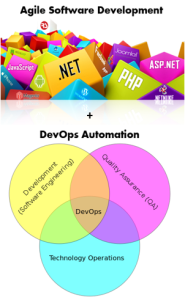 I recently shared a Nearshore Americas article which touched on Costa Rica’s advanced “readiness” to deal with the onslaught of workforce automation.
I recently shared a Nearshore Americas article which touched on Costa Rica’s advanced “readiness” to deal with the onslaught of workforce automation.
According to the article, “Automation, sometimes referred to as ‘no-shoring,’ is still in its infancy, but when combined with business process as a service (BPaaS), has all the potential to be a powerful force for disruptive change.”
The same article also spoke to the progress Colombia has made on the AT Kearney Global Services Location Index (a measure of countries by business environment and availability of skilled talent), jumping 23 spots to be ranked 20th, making the largest advance of any country in the Index, with significant impact from its growing technology workforce. It forecasts that Colombia is among the brightest hotspots amid a global services environment where the threat of machines taking jobs from humans seems to be at an all-time high.
This got me thinking about the bigger picture of automation readiness for the global workforce.
How should societies specifically deal with this ongoing, disruptive and imminent shift of human labor to automation? In the U.S. and elsewhere, we initially saw this in manufacturing and we are now seeing more of it in the services arena. Plus, ironically, automation itself often requires a new type of skill to manage and administer. We see this in our own QA automation practice, where QA engineers now need more technical IT background, and even stronger interpersonal skills to allow them to effectively collaborate across functions and geographic borders.
So what is the secret for preparing a workforce to handle the automation push? How can it be embraced in a fashion that not only helps productivity, but also helps ensure a workforce is prepared to work with (and beyond) automation. The article points to some clues. Here are some of the highlights:
For Colombia – The report applauds Colombia’s effort to grow human talent, noting its Digital Talent Initiative has funded IT education for a significant portion of its workforce. More can be seen in my 2015 post “Why Colombia”.
For Costa Rica – Costa Rica’s efforts to improve educational standards appear to be paying high dividends. According to the United Nations, Costa Rica invests a greater percentage of its gross domestic product (GDP) in economic infrastructure than any other country in Latin America. The article points to specific examples in Costa Rica of a higher-end use of labor, for example, supply chain direction activities at Walmart. These positions are not easily automated.
“Costa Rica has evolved to offer services that, though originally might have been more on the transactional side, have moved up the value chain,” said Johan Gott, a principal in A.T. Kearney’s private equity practice. “The combination of IQ and EQ that is required for those types of jobs still has a long time before it will be replaced by automation.”
Based on the above, I feel societies need to encourage the permeation of higher-end skills that can complement automation, through:
- A mindset that understands the inevitability of automation and the need to train a workforce with automation management skills
- A pro-business landscape that rewards companies for employing folks with higher-end skill sets
- Government sponsored education/programs – including long term investment – and not just on short-term opportunities through tax breaks
- Partnering with educational institutions to encourage appropriate curriculum development around language, technical skills and the reasoning skills
- Educating the general population on the importance of striving for these higher-end skills
Of course the above steps will not prevent automation from being a disruptor, but we should all strive to improve our collective skills – making automation a “friend” and not a ‘foe” when possible.

 SIgn up
SIgn up